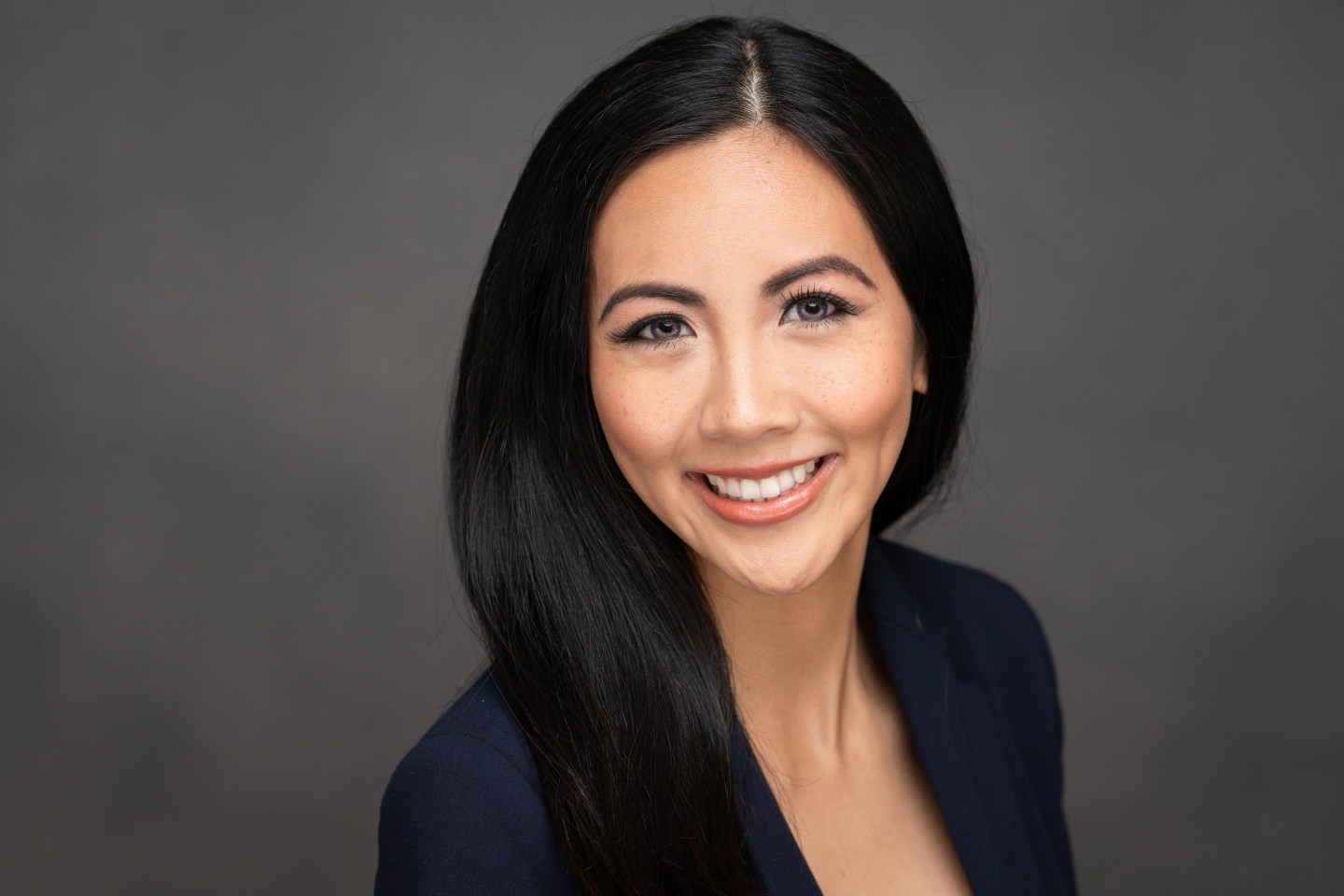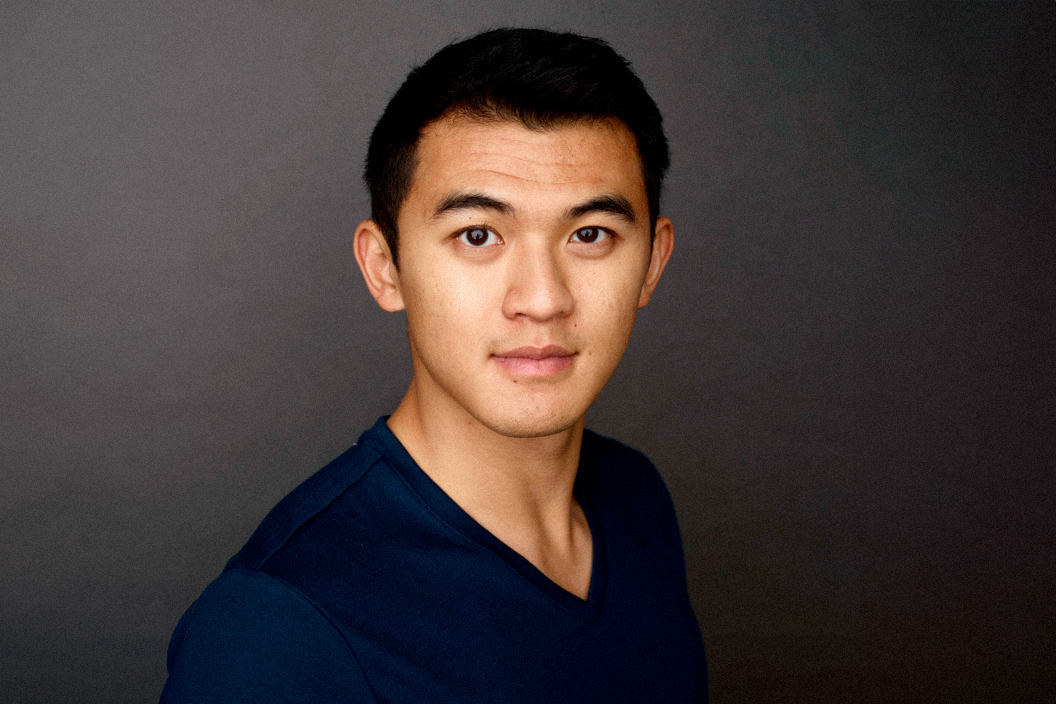The following essay was contributed by Trisha Bantigue, CEO and co-founder of the San Francisco-based formal dress marketplace, Queenly.
What was your GMV last quarter? How much are you burning each month? Who are the engineering candidates in your pipeline? How are your KPIs right now? Do you have any key IP that gives you a technical moat? What is the actual addressable market for this type of industry? What is your exit strategy?
After two brutal fundraising rounds, these are the investor questions that are painfully ingrained in my brain and depressingly etched in my soul. The fact that I’m still standing and confidently pitching my startup everywhere, after so many back-to-back rejections and obstacles, is a true testament to the grit that every founder is required to have. You have to get past all the “email me when you have a lead”, the “too early for us”, the “market’s not big enough”, and all the doors being callously slammed in your face. They say, “you just have to stick it out” and “keep pushing forward”. That’s the founder mentality that is perpetuated in Silicon Valley.
After three years of being a startup founder, I’ve been asked numerous questions from so many different VCs, angel investors, podcast hosts, and journalists, about how I’m supposed to take my company to a billion dollar valuation—but none have ever been about my mental health.
In 2019, when we first launched Queenly, an online marketplace dedicated to democratizing the formalwear industry, I was your typical bright-eyed, naive, hungry founder that was ready to take on the world. Of course, I knew that starting your own business was going to be hard, and no one knows a hard life like I do. Coming from a poor immigrant background and being an independent student at 17 with no familial support, I was used to life’s trials and tribulations, and had become an expert at pushing my trauma aside in order to survive. The startup life—notorious for attracting workaholic-types—was calling out to me, and I willingly took on the challenge.

Even though our pre-seed round was five straight months of hell, we were still grateful that in February 2020, we successfully raised almost a million dollars. I was relieved, and we were excited to deploy the capital to further grow our metrics and improve our product. Then, on March 15, 2020, the whole country went to a full stop and the COVID-19 lockdowns started.
Panic. Confusion. Hopelessness. Fear. Everything came crashing down on me and I didn’t know what the next step was. My co-founder, Kathy Zhou, and I fell into a sea of depression for the next couple of months, as we realized that all the formal events in the U.S. were being canceled left and right. We had just pitched to investors that if they believed in us, we would grow this business and exponentially grow their investment. How could we do that when there were suddenly no formal events for our customers to buy a dress for? How could we advertise, when there was a global pandemic and people were getting sick/dying from the virus? We did not want to be tone deaf in our message, but we also didn’t want to die off as a company. We didn’t know what to do or where to even begin with our business. My anxiety shot through the roof, and I started to feel like a failure.
After a series of various scrappy solutions to remediate the effects of COVID-19 on our company, we finally got through the first year of the pandemic, while selling half a million dollars worth of dresses. Consequently, we got accepted into Y Combinator and came out as one of TechCrunch’s favorite companies to watch out for in the Winter 2021 batch. Soon after, we announced we were closing our seed round and that it was being led by Andreessen Horowitz. That summer, I got engaged to my soul mate and I got to hire the A team of my dreams. And to just top it all off, I was chosen to be the Art & Style cover for the Forbes 30 Under 30 2022 list. I was getting everything I’d always wanted in my life, and yet, I still felt so empty inside.
The start of this year was a bit rocky: we started to get hit by some copyright trolls and received push back from the old guards in the formalwear industry. More than 5,000 of our links were abruptly taken down by Google because a copyright troll decided to abuse their DMCA takedown policy. This resulted in our search traffic being hit drastically, down 50%. We started losing some of our boutique store partners; dress designers were threatening not to sell to boutique stores if they worked with us. There’s a reason why they say that nine out of 10 startups fail, and it’s because there are no protective measures for them in the beginning or any structured step-by-step guide for when you are disrupting an industry. I told myself: “It’s okay. Everything’s fine, this is nothing I can’t handle,” and I also kept reinforcing to myself, “I just have to keep pushing through every single obstacle and I just have to keep getting stronger.” Then, I heard the news of someone I knew, Cheslie Kryst (Miss USA 2019), committing suicide in New York City and my heart abruptly dropped to the floor. Tears began to flood my eyes and I couldn’t breathe, like I was just hit by a train. I couldn’t believe it. I couldn’t believe that someone like her would ever do such a thing. Never did I think that this was possible for someone so accomplished. I started to question the purpose of everything I was doing and everything that I was.
I started to get paranoid as my deep, dark depression started to creep up at me once again. I was engulfed in sadness and I couldn’t shake it off. I began to feel grief that I haven’t felt in 20 years. That’s when I knew it was time—time for me to get the help that I desperately needed for me to take care of myself and to take care of my company. Although I have been seeing a therapist for the past two years, I knew that what I needed was medication. So finally, I asked my therapist to refer me to a psychiatrist, and I was prescribed an antidepressant.
Today, mental health awareness is a lot more prevalent, but I don’t think we talk about it enough within the tech industry. It’s something that we brush off, as it’s “not sexy enough” to talk about for extended periods of time. Even though it’s not a secret that founders are two times more likely to experience depression and to commit suicide, the whole industry just keeps turning a blind eye to it. It doesn’t sell. It doesn’t excite founders to build unicorns. And even if it’s mentioned, it’s sugar-coated so much that you just gloss over it and focus on the happy parts. It simply hasn’t been enough.
I’ve had endless nights of anxiety-filled thoughts and mornings where depression was so heavy that I couldn’t get up. All I do is push it all down, every single day, so I can put my best foot forward for my team. That’s the thing about being this glorified startup founder, is that they never really tell you that the majority of the cost is your own mental health. You sacrifice so many things for the slim possibility of success, that so many foolishly hold on to until they no longer have anything to give. The hustle mentality has taught us to keep moving forward, but it never taught us to take a pause.
Opening up about my own mental health has been a fairly daunting thing, but I decided to be more outspoken about it to help remove the stigma. I know that many other founders have felt the same way, and may still be in the same boat. We are human beings with emotions, traumas, and triggers, and if you want to make your company succeed, the best thing you can do is to prioritize taking care of yourself first. No one can run a company effectively when your own glass is not filled and you’re not at 100%.
I want this to serve as a wake up call to the industry, to start seeing founders as human beings instead of startup robots who tirelessly work on growing a business with no repercussions on their own mental health—or their own lives. I want to encourage those who are in a position of power, who have a platform with a wide reach, who have influence over so many people in tech, to speak up on this topic more often and to provide more support. We need to make sure this doesn’t stay a taboo, or we will lose so many more incredible founders to depression and suicide. My hope is that my message can truly be heard, and that things will change for the better so we remove the toxicity within the industry that we all care about and love.
Jackson Fordyce curated the deals section of today’s newsletter. You can submit a deal for the Term Sheet newsletter here.
- Arcadia, a Washington D.C.-based clean energy tech platform developer, raised $150 million in Series E funding led by J.P. Morgan Asset Management’s Sustainable Growth Equity Team and was joined by investors including Keyframe Capital, Broadscale Group, Triangle Peak Partners, Camber Creek, Tiger Global Management, Wellington Management, Salesforce Ventures, Drawdown Fund, and others.
- Stord, an Atlanta-based cloud-based supply chain company, raised $120 million in Series D funding led by Franklin Templeton and was joined by investors including Sozo Ventures, Strike Capital, 137 Ventures, Kleiner Perkins, Founders Fund, BOND, Susa Ventures, Dynamo Ventures, Lux Capital, and Salesforce Ventures.
- Talos, a New York-based digital asset trading technology provider, raised $105 million in Series B funding led by General Atlantic and was joined by investors including Stripes, BNY Mellon, Citi, Wells Fargo Strategic Capital, DRW, SCB 10x, Matrix Capital Management, Fin VC, and Voyager Digital.
- Hugging Face, a New York-based ready-to-use machine learning models company, raised $100 million in Series C funding led by Lux Capital and was joined by investors including Sequoia, Coatue, and others.
- Vention, a Montreal-based digital manufacturing automation platform, raised $95 million in Series C funding led by Georgian and was joined by investors including Fidelity Investment Canada ULC, White Star Capital, Bain Capital Ventures, and Bolt Ventures.
- SirionLabs, a Bellevue, Wash.-based contract management software platform, raised $85 million in Series D funding led by Partners Group and was joined by investors including Sequoia Capital and Tiger Global.
- Supabase, a Pleasanton, Calif.-based Database-as-a-Service company, raised $80 million in Series B funding led by Felicis and was joined by investors including Coatue and Lightspeed.
- Nexite, a Tel Aviv-based data platform for the retail industry, raised $67 million in Series C funding led by Pitango Growth and Saban Ventures and was joined by investors including Battery Ventures, Intel Capital, Pitango First, and Vertex Ventures.
- Certn, a Victoria, British Columbia-based background screening solutions provider, raised $50 million in Series B funding led by B Capital and was joined by investors including BMO, Tribe, Inovia Capital, Telstra Ventures, Scribble, Moxxie Ventures, and Gaingels Covalent Ventures.
- Dusty Robotics, a Mountain View, Calif.-based, robotics solution provider for the construction industry, raised $45 million in Series B funding led by Scale Venture Partners and was joined by investors including Baseline Ventures, Canaan Partners, Root Ventures, NextGen Venture Partners, and Cantos.
- Osmind, a San Francisco-based mental health EHR, raised $40 million in Series B funding led by DFJ Growth and was joined by investors including Susa Ventures, Lachy Groom, former Allergan CEO and chairman and current Osmind board member Brent Saunders, Helena Goodman, H1 Insights CEO Ariel Katz, General Catalyst, Future Ventures, Tiger Global, and Pear VC.
- OncoHost, a Binyamina, Israel-based cancer therapy company, raised $35 million in Series C funding led by ALIVE Israel HealthTech VC, Leumi Partners, Menora Mivtachim, OurCrowd, and others.
- Artax Biopharma, a Cambridge, Mass.-based automimmue disease treatment company, raised $26 million in funding from investors including Eli Lilly and Company, Sound Bioventures, Advent Life Sciences, Columbus Venture Partners, Belinda Termeer, and others.
- Arianee, a Paris-based Web3 solution for brands, raised €20 million ($21.1 million) in Series A funding led by Tiger Global and was joined by investors including Bpifrance, ISAI, Noia Capital, Cygni Capital, Commerce Venture, and Motier Ventures.
- Casa, a Denver-based Bitcoin key management protocol, raised $21 million in Series A funding led by Acrew Capital and was joined by investors including Positive Sum Ventures, Naval Ravikant, Scott Belsky, Avon Ventures, Stillmark, Tioga Capital, Castle Island Ventures, and Lerer Hippeau.
- Concentric, a San Jose-based autonomous data security company, raised $14.5 million in Series A funding led by Ballistic Ventures and was joined by investors including Citi Ventures, Core Ventures Group, Engineering Capital, and Clear Ventures.
- OtterTune, a Pittsburgh, Pa.-based database automation and optimization platform, raised $12 million in Series A funding led by Intel Capital and Race Capital and was joined by Accel.
- Oriient, a Tel Aviv-based indoor GPS solution provider, raised $11 million in Series A funding and was joined by investors including OurCrowd, Regal Four, F2 Venture Capital, NGN Partners, and Future Energy Ventures.
- GetHenry, a Berlin-based e-bike delivery company, raised €10 million ($10.54 million) in seed funding led by LocalGlobe and was joined by investors including Visionaries Club, Founder Collective, EnBW New Ventures, GreenPoint Partners, SpeedUp Ventures, Third Sphere, APX, InnoEnergy, and other angels.
- Rensair, a London-based air purification company, raised $7 million in Series A funding led by Hoxton Ventures. The company also acquired the air filtration business of AirLabs, a London-based air cleaning and monitoring company.
- Pico MES, a Redwood City-based manufacturing software company, raised $6.75M in seed funding led by Congruent Ventures and was joined by investors including Union Labs, Lemnos Labs, SE Ventures, and Schneider Electric.
- Graft, a San Francisco-based A.I.-based data analytics platform, raised $4.5 million in pre-seed funding led by GV and was joined by investors including NEA, Essence VC, Formulate Ventures, and SV Angel.
PRIVATE EQUITY
- Arsenal Capital Partners, in partnership with McKesson Corporation, acquired a majority stake in OncoHealth, an Atlanta-based digital oncology-focused health company. Financial terms were not disclosed.
- GHK Capital Partners acquired Auveco, a Cold Spring, Ky.-based automotive fasteners distributor to the body hardware aftermarket. Financial terms were not disclosed.
- Hyde Park Capital acquired the investment banking arm of CAVU Capital, a Tampa-based private investment firm. Financial terms were not disclosed.
- Médisup Sciences, backed by Stirling Square Capital Partners, acquired a majority stake in Take The Wind, a Coimbra, Portugal-based simulation technology company for clinical education, training, and professional assessment. Financial terms were not disclosed.
- A Peak Rock Capital portfolio company acquired Mojix, a Los Angeles-based supply chain SaaS platform. Financial terms were not disclosed.
OTHER
- Pfizer agreed to acquire Biohaven Pharmaceutical Holding, a New Haven, C.T.-based biopharmaceutical company, for $11.6 billion.
- ESW agreed to acquire Scalefast, a Los Angeles-based e-commerce platform. The deal is reported to be valued at $300 million.
- Industrious acquired Welkin & Meraki, a Paris-based workplace provider, and The Great Room, a Singapore-based workplace provider. A deal is valued at $100 million.
- ColdQuanta acquired Super.tech, a Chicago-based quantum software application and platform development company. Financial terms were not disclosed.
- Yapily agreed to acquire finAPI, a Munich-based open banking solutions provider in Germany. Financial terms were not disclosed.
IPOS
- CVC Capital Partners, a Luxembourg-based private equity firm, delayed its €25 billion ($28 billion) IPO plans amid market turbulence. The company plans to go public this fall or early 2023, according to the Financial Times.
SPAC
- Banijay, a Paris-based media group, plans to go public via a merger with a SPAC backed by Bernard Arnault. A deal could value the company at more than $4.21 billion.
- ProSomnus Holdings, a Pleasanton, Calif.-based medical device company for sleep apnea, agreed to go public via a merger with Lakeshore Acquisition I Corp., a SPAC. A deal could value the company at $168 million.
FUNDS + FUNDS OF FUNDS
- Unusual Ventures, a Menlo Park, Calif.-based venture capital firm, raised $485 million for a third fund focused on seed stage software companies across infrastructure, SaaS, fintech, and consumer applications industries.
PEOPLE
- Madison Dearborn Partners, a Chicago-based private equity investment firm, promoted Tim Sullivan and Tom Souleles to co-presidents.
- Monroe Capital, a Chicago-based asset management firm, hired Gordon Saint-Denis managing director, head of sports finance. Formerly, he was with Citizens Bank.
This is the web version of Term Sheet, a daily newsletter on the biggest deals and dealmakers. Sign up to get it delivered free to your inbox.











